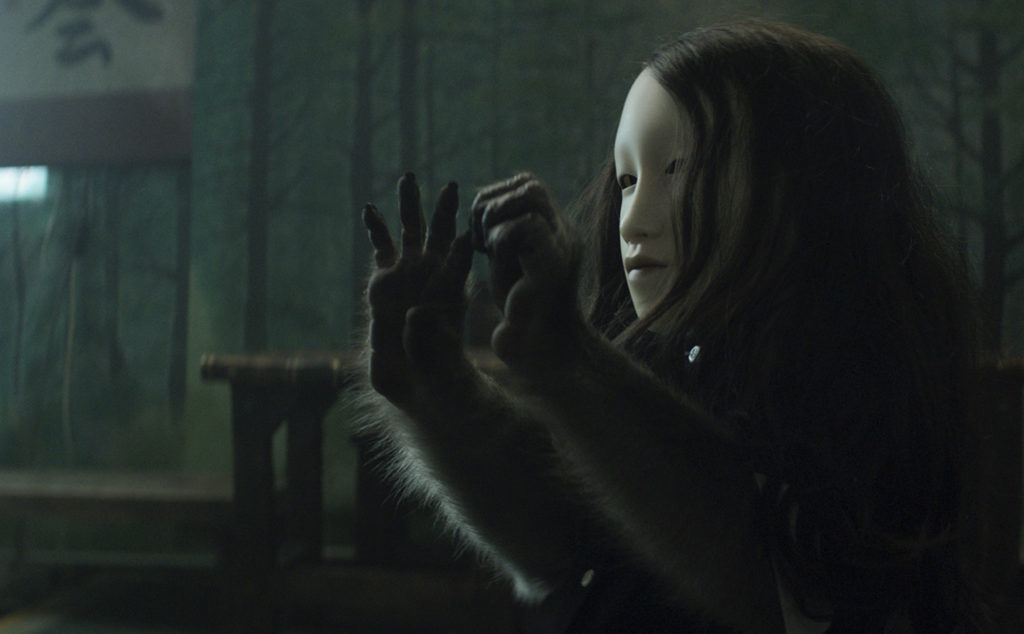Pierre Huyghe’s film Human Mask (2014) opens with a view of a streetscape near Fukushima, in the area devastated by a mix of natural and man-made disasters in 2011. Amidst the ruins, the French artist’s camera enters an abandoned restaurant to discover what appears to be the sole survivor: a monkey wearing a dress and a young-girl mask. In reality, the creature wears a similar outfit when it serves customers in a saké house outside Tokyo, mimicking human bar staff.
However, here, alone, it operates like an automaton. Trapped in its repetitive activity, it now works only for itself. Some times it seems almost human, some times very monkey. We are left with mixed feelings, wondering if we are truly empathising with the animal or simply projecting our own feelings upon it. Many of Huyghe’s works deal with our relationship to animals and our relationship to deep history, where humanist understandings and interpretations falter, requiring us to take a wider ‘more than human’ view.







